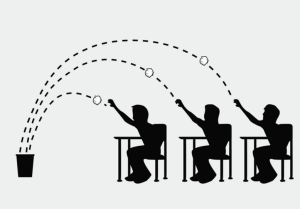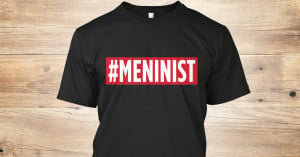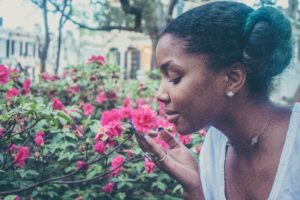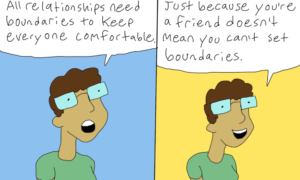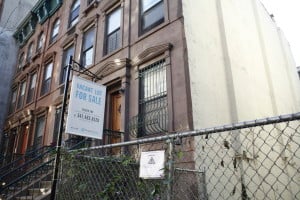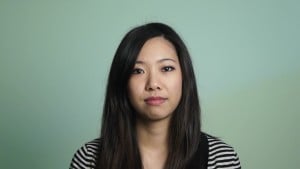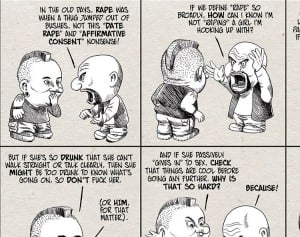
Group of friends sitting together on a stoop.
I grew up in Charlotte, NC in a neighborhood called Griertown. No one in my neighborhood has gone to college except for me. I am the typical low-income, first-generation college student.
My mother always had a plan to get me into a magnet school that would get me out of east Charlotte and around more “white folks.”
She wasn’t wrong, per se. I believe that attenting the language magnet school I went to is the reason I am here today, beginning my senior year at Spelman College, and I am grateful for that.
My mother moved me out to South Charlotte in order for me to continue in my language program for middle and high school. And, today, I can’t even recognize Griertown. All of the houses have been renovated and the neighborhood even has a new name: Elizabeth Heights.
As someone who grew up in an unsafe neighborhood, I am determined to advocate for more investment in poor neighborhoods. But, unfortunately, it isn’t just about investment and “development.” Developers don’t care about your rent and if you can afford to live in the neighborhood, what they care about is profit.
As a student organizer at a historically black college/university (HBCU) in a rapidly changing community, I am hyper-aware of my presence in the West End of Atlanta. As someone so committed to the liberation of black people, it can be hard to realize you might be inflicting harm or strife on others.
It truly didn’t hit me that I — a black student from a low-income family — could be contributing to gentrification, until I attended an Atlanta city council meeting and realized I didn’t know the name of the black woman leading the Tent City efforts end displacement in the Peoplestown neighborhood of Atlanta.
I pride myself on my ability to remember names, but I had been so caught up in the conflict part of the work that I realized I didn’t make time to get to know the folks I was fighting for. That’s when I knew I needed to step back and readjust my focus.
My experience is not isolated. In poor neighborhoods all across the country, private — and sometimes even public — universities have actively displaced of poor folks of color in the name of gentrification.
There’s my school, Spelman College in Atlanta, who hosts board of trustee members who are part of corporations such as Chick Fil A and Arthur Blank Foundation. They directly sponsored the Mercedes Benz Georgia Dome, a project that displaced hundreds of neighbors.
There’s the very expensive private University of Southern California, which is housed in the neighborhood once pegged as “South Central” Los Angeles and has a long history of displacing residents to serve the interests of college students while ignoring community voice.
Gentrification allows for new residents to define criminal behaviors among communities, a practice that encourages increased police surveillance and can also alter perceived crime rates through the renaming neighborhoods.
There’s the University of Chicago, in the Hyde Park neighborhood of Chicago, which ruthlessly pushed out black and brown residents for the sake of building a college town.
Across the country, institutions are looking to develop safer public transportation, study areas, and commerce spaces for students to take part in. This all creates a vibrant campus culture that attracts more students nationally and builds stronger alumni relations.
While these things can seem like simple safety issues, they have the power to impact the lives of entire communities. In Atlanta, these shifts have created a palpable divide between college students and folks in the neighborhood.
These actions also often lead to a rise in police presence, the arrest of more black folks, rent increases, and, eventually, the full displacement of low-income families that depend on affordable housing.
Going to Spelman my freshman year meant I was surrounded by folks who all held a radical idea of freedom. But in my last three years in college, I’ve realized that not every black person is about change, especially since, often, one must prioritize the community in the pursuit of freedom.
As a student, it’s easy to get into prestigious schools and forget about the land it occupies. As students, we request more coffee shops, we call the cops on homeless folks or others we don’t deem as respectable.
I don’t want to cause harm to black kids, especially black kids like myself and my family, who are still struggling. They don’t care about bike lanes — they need more after-school programs.
College students can, in fact, be gentrifiers; we contribute to the cultural change of communities through our academic and social class.
As student organizers, we often want to create a world that is free for everyone. But, in doing so, we must also work to combat gentrification and find ways to support community voice.
So how do we avoid becoming cogs in the gentrification machine? Here are some ways to get started:
1. Respect Community Voice
This means you do not need to speak for folks who are able to speak for themselves.
The importance of following community voice shows up in how we respect folks who have been in these communities longer than we have — they have stories that speak to the true history of resistance.
“Follow the lead of the community members already doing the work,” said Eva Dickerson, an organizer with ATLIsReady. “It’s our job as students to find the people who have lived in the neighborhood and link them to the resources that you can provide because of your privilege as a student.”
2. Understand your place in the neighborhood
This includes respecting elder voices and uplifting queer and trans voices in spaces where those identities aren’t being considered.
“I try to do more listening than speaking. In these communities, people know what their problems are and want help, but they also can speak for themselves,” said of Tara Dixon of her time as a community organizer with Housing Justice, a nonprofit that focuses on the renters’ crisis in Atlanta.
3. Learn about and value the history and culture of the neighborhood.
Many college students show up in college towns, stay for 10 months, and leave. In that time span, they often take no time to get to know the area and the beauty and culture of the place they inhabit.
When I drive down 85 towards the West End, I feel safer. It isn’t just about the Atlanta University Center, it has amazing vegan restaurants and wings spots that make my Atlanta experience unique.
I call the West End home because it reminds me of Griertown; everyone knows you and if they don’t, they still make you feel at home.
The West End and Vine City began as black suburbs that helped stabilize the black community as folks gained more capital and were able to send their children to integrated schools in the 1960’s.
Many of today’s elders and community leaders were around for the peak and downfall of a community that is now being sold off piece by piece to private interests.
So, while the West End is currently nestled in the heart of gentrification, the neighborhood and its residents continue to push education and community fortitude, fighting for a day when the neighborhood will return back to its past glory.
4. Identify your privilege.
This is one where things can get a bit messy. This is the step where some people tend to get stuck.
“Our microaggressions within our privilege cause us to hurt the communities around us,” said Brionna Gardenshire, a student activist based in Atlanta. “We should use our privilege for advocacy. We should be interceding on behalf of the community around us to our institutions.”
If you are not of a certain community and have more class privilege than community members, I recognize and realize that you should NOT be the focal point of community meetings. This means you should not be giving teach-ins on a community you are not from.
“These communities [The West End & Vine City] get dismissed often and it’s not good to further perpetuate this dismissal of them or their ideas,” said Dixon of how she checks her own privilege when working on housing issues.
5. Reach out to elders/locals in the neighborhood.
“I believe it’s vital that we work to build with elders in order to grow the work we do,” said Da’Shaun Harrison, a student activist at Morehouse College. “Being able to work with Civil Rights leaders [can] catalyze our efforts so that we engage with every demographic in the West End.”
The goal of building strategically is for folks on the ground to learn and develop a strategy from folks who have been here long before us. Yet, despite the fact that so many Civil Rights leaders live in Atlanta, there always seems to be a huge generational divide.
Organizers on both sides have been dismissive, leading to varied strategies on how to help the West End of Atlanta that were not actually effective.
Growing up, I used to hate listening to my mother go on about our family tree. But, through organizing, I have found a renewed love for history, especially the ways we can plug into the elders in our communities to find ways to build more strategic paths to liberation.
Elders and those who have firm roots in the community can help us understand how to help uplift their stories and will make the work we do to get Community Benefits Agreements no longer demands but solid legislation.
***
As a transplant in a new city, it can be difficult to avoid being a gentrifier. But, as a student or person who actually cares about the lives of black folks, it matters that you put forth the effort to affect change.
My experiences in organizing work have historically been with black folks, specifically, but these tips and strategies can be used and applied to action in any community of color.
In the end, we ain’t perfect but we can use what resources we have to make a real difference.
[do_widget id=’text-101′]
Clarissa Brooks is an Everyday Feminism Reporting Fellow. Clarissa is senior at Spelman College, a journalist, and a community organizer. Originally from Charlotte, NC, Clarissa works to blend her love of community, ethical journalism and scholarship in a way that will create a better world. Clarissa has been an ONA HBCU Fellow, Equality For Her Intern and Summer Fellow for Students For Education Reform.Clarissa has been engaged in community organizing work and journalism for nearly 3 years. From mobilizing communities, hosting teach-ins, leading direct actions, and developing policy her love of community always comes first.
Search our 3000+ articles!
Read our articles about:
Our online racial justice training
Used by hundreds of universities, non-profits, and businesses.
Click to learn more





